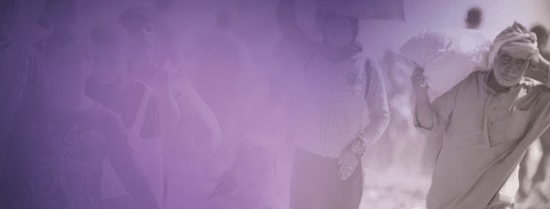In this hybrid Humanitarian Studies Centre and Humanitarian Governance seminar, Dr Oscar A. Gómez will critically confront the strong anti-State bias inherent in the liberal humanitarian system.
- Associate professor
- Date
- Tuesday 22 Apr 2025, 16:00 - 17:15
- Type
- Seminar
- Spoken Language
- English
- Room
- Aula B and online via Teams
- Location
- International Institute of Social Studies
- Ticket information
If you plan to join via Teams, please still register - you will receive the Teams link in the registration confirmation email.

Based on the assumptions of incapacity or unwillingness to meet humanitarian needs, humanitarian studies primarily focus on non-state actors. This is problematic for several reasons, as it perpetuates the colonial structure of humanitarianism, wherein wealthy Western states act as benefactors through (also Western) non-state humanitarian actors who assist the weak and wicked rest.
Dr Oscar A. Gómez will argue that any attempt to salvage humanitarianism from its colonial past and present necessitates recognizing and scrutinizing the state's role as a humanitarian actor.
So, what kind of humanitarian actor is the State? What are its characteristics? How does it reshape our understanding of humanitarian action?
He will present the case study of Colombia and its enduring struggle with multiple humanitarian needs to address these questions through both discourse and practice. In light of fundamental changes in international humanitarianism, he will propose a profile of the State as a humanitarian actor, outlining its primary features and implications for the future of humanitarianism.
About the speaker
Oscar A. Gómez (PhD, Tohoku University) is an Associate Professor at the College of Asia Pacific Studies, Ritsumeikan Asia Pacific University, teaching Development Studies, Public Policy, and International Relations.
His main interest is in global governance and the practice of human security, with special emphasis on international cooperation and humanitarian crises (disasters, armed conflict, forced displacement, climate change and pandemics).
His projects include research on:
- human security norms and perceptions in the ASEAN+3
- crisis management beyond the humanitarian-devel-opment nexus
- non-Western humanitarianism.
He worked for five years as Research Fellow for Japan International Cooperation Agency between 2013 and 2018. He co-authored background papers for the UNDP's 2014, 2016, 2020 and 2022 Human Development Report Office reports.
Recent publications include pieces in the Yearbook of International Humanitarian Law, the Global Social Challenges Journal, the Journal of Human Development and Capabilities, and the Handbook on Humanitarianism and Inequality.
- More information
This webinar is an initiative of the Humanitarian Studies Centre (HSC) at ISS, which hosts the project ‘Humanitarian Governance: Accountability, Advocacy, Alternatives’ (HUM-GOV). The HUM-GOV Project has received funding from the European Research Council (ERC) under the European Union’s Horizon 2020 research and innovation programme under grant agreement No. 884139.
- Related links
- Humanitarian governance: accountability, advocacy, alternatives
Humanitarian Studies Centre
